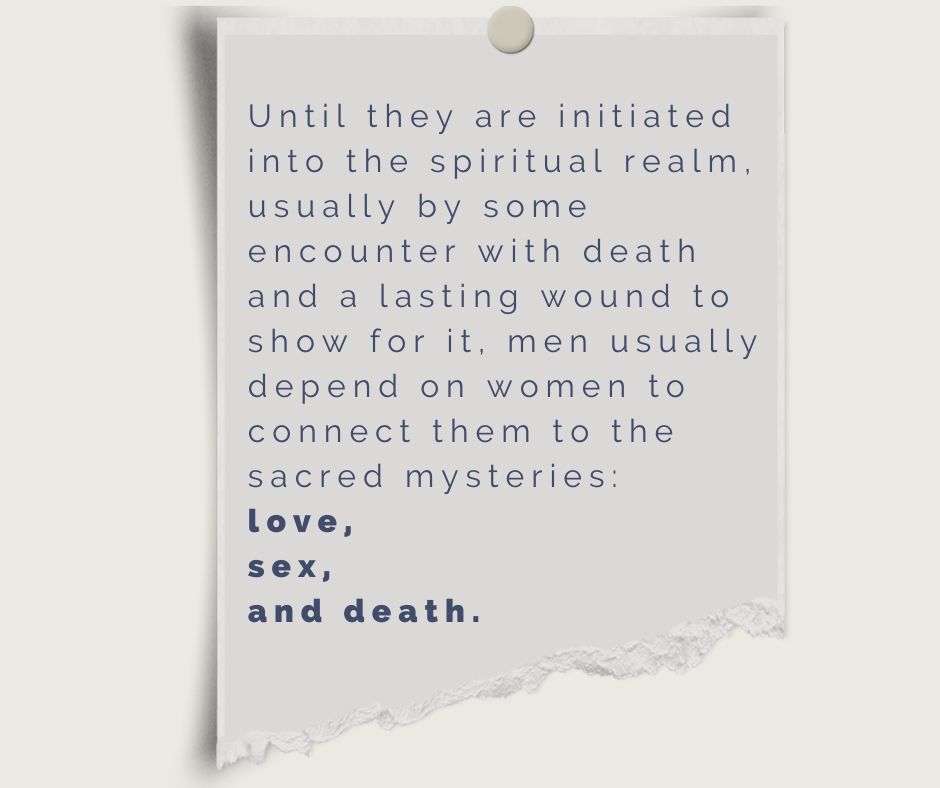The Two Annunciations of Joseph

Mary had one Annunciation. Joseph had two because, well—in the spiritual realm, men need two shots.
His first annunciation did not come via angel. It was his fiancé announcing a big problem. God had told her all about it, directly, and he had to hear it through her. His job, it seems, is to go along, be the Good Provider. A carpenter, he is just the guy to build a changing table in the nursery. But he isn’t a primary character in Luke’s story. In fact, the virginal conception seems to render him irrelevant, disposable.
Many men feel this way about the deeply mysterious aspect of human life. They sense that this all belongs to the distaff side, and if they know it at all, it is mediated to them by a woman. Until they are initiated into the spiritual realm, usually by some encounter with death and a lasting wound to show for it, men usually depend on women to connect them to the sacred mysteries: love, sex and death.
In his first annunciation, I believe this indirect, hand-me-down experience is the level on which Joseph lives. It’s not bad or wrong, it’s just how men tend to begin their foray into that space between the material and the spiritual realms. And if we had only Luke’s Christmas story, that is the level where Joseph would be stuck.
But here Matthew intervenes. In his telling (1:20), after the second-hand announcement that ushers him into chaos and confusion, Joseph receives his own Annunciation. An unnamed angel appears to him in a dream, calms his fear and anger, and tells him not to waver from the marriage. A man attuned to his dreams is in touch with his own soul. He is no longer dependent on a woman to see into the spirit world. He has third-eye vision. Going forward, it is Joseph’s dream (2:13) that drives the holy family into Egypt to escape Herod’s bloodthirst. Again he dreams (2:22) and changes their return journey from Bethlehem to Nazareth, saving the life of Mary and the son that God has strangely given him.
The Joseph version of the Christmas story invites men to step fully into the authority of their own inner life. And women? Perhaps it invites women to require this of their men.
Atta boy Joseph! This story really strikes a chord because of its relevance to today’s gender issues. I think stepping into the spiritual realm is a good place to start for men to regain their manhood.
Men’s issues are arising at a time when women are on the rise, which makes it more difficult for men to find their way and their place. The answer of course is not to stop women’s rise–but for men to up their own game and claim their own souls.
Joseph’s dreams in Matt echo back to another dreamer of the same name…Jacob’s youngest
Yes–I hadn’t realized that. Thank you, Peter.
I say this everyday, “Oh my. This is the best by far.” Well, in a month’s worth of brilliance, this may likely hold up for the next week. Can’t wait to find out. Thank you David.
Thanks, David. Reminds me of “Episcopalians and their husbands.”
That said, my wife and I are somewhat atypical. I am a church guy. Always have been. She has a very healthy but un-religious spirituality. And when it comes to the realm of the spirit, neither of us leads the other. We go our own, but parallel, ways.
Well, initially I was going to add a “comment” to my own post, just to say what I didn’t have the space to say in the post, which is that my references to men and women are archetypal. The masculine and feminine character and energy lie within each of us, and we are all on that spectrum in varying degrees. I know you know this, i’m just affirming your comment. It’s helpful because, as you note, we all experience this in differing ways, and while a man may need–as I suggest–to step into his own inner authority, plenty of women also need to do that.